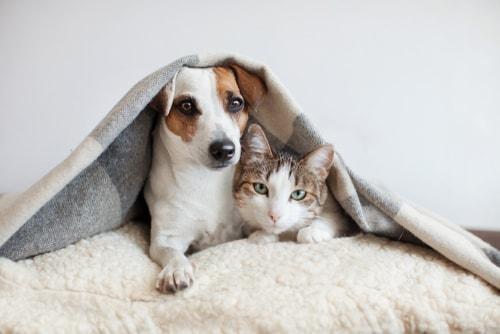Can I Include My Pets in My Estate Plan?
 As you go through the steps of creating an estate plan, you will probably give plenty of consideration to which of your family members will receive a particular asset or a part of your estate. If you have a young grandchild, for example, you could choose to bequeath one of your vehicles to him or her. With children, grandchildren, and other loved ones to consider, many people often overlook their companion animals. Could it be possible to include provisions for a pet dog or cat in your Illinois estate plan? Put simply, the answer is yes, but there are some limitations.
As you go through the steps of creating an estate plan, you will probably give plenty of consideration to which of your family members will receive a particular asset or a part of your estate. If you have a young grandchild, for example, you could choose to bequeath one of your vehicles to him or her. With children, grandchildren, and other loved ones to consider, many people often overlook their companion animals. Could it be possible to include provisions for a pet dog or cat in your Illinois estate plan? Put simply, the answer is yes, but there are some limitations.
The Basics of a Pet Trust
Under the law in Illinois, you are permitted to make provisions for the care and protection of certain domestic animals through estate planning. In fact, the law explicitly allows for the creation of “trusts for domestic or pet animals”—more commonly known as “pet trusts.” The statute is not precise regarding the species of animals that are eligible to be covered under pet trust, as it simply states that the trust can be set up for the benefit of “one or more designated domestic or pet animals.” Over the years, however, Illinois courts have determined that pet trusts can apply to cats, dogs, and horses, as well as a number of other kinds of animals. Generally, livestock and farm animals are not considered domestic or pet animals.
In setting up your pet trust, you will be required to specify each animal that you wish to have covered. The trust documentation must include the animal’s name, sex, age, species, breed, and any other important details. You should also list any known health or medical conditions so that the individual you choose to manage the trust—known as the trustee—will be better prepared for the future.
Establishing Expectations
It is your right to decide how the assets you have put into a pet trust will be used. With this in mind, you should be sure to be specific about the level and type of care that you wish to be provided for the covered animals. For example, if you expect your trustee to have your beloved dog groomed every other month, you should include such directions in the trust documents.
Choosing a trustee wisely is also important. The person you choose should share your love of animals and be willing to carry out your wishes exactly as you intend.
At your discretion, your pet trust could also provide the trustee with the power to sell or give the animal to a new owner in the right situation. Consider a scenario, for example, in which your selected caregiver has taken in your dog—a friendly animal who loves children. About a year following your death, your granddaughter—who now has two children—asks to adopt your dog, promising to give him a loving home. Your chosen caregiver could only allow the adoption if you have given him or her the permission to do so.
Closing the Pet Trust
An Illinois pet trust can remain in effect only while the covered animals are still living. The trust must be closed upon the death of the last designated pet, or when the chosen caregiver is no longer caring for the last designated pet. Any assets remaining in the trust will then be distributed according to the plan that you established. This means that you must decide in advance what will happen to those funds. Should the caregiver be allowed to keep them? Should the money be given to a local animal rescue organization? The choice is yours, but it is important to include your decision in the trust documents to ensure that your wishes are carried out properly.
Call a Wheaton Estate Planning Lawyer
A pet trust is just one piece of a comprehensive estate plan. If you have questions about pet trusts or other instruments of estate planning, contact an experienced DuPage County wills and trusts attorney at Stock, Carlson & Asso. LLC. Call 630-665-2500 to schedule a confidential consultation and get the guidance you need.
Source:
http://www.ilga.gov/legislation/ilcs/ilcs3.asp?ActID=2117&ChapterID=61

 630-665-2500
630-665-2500







